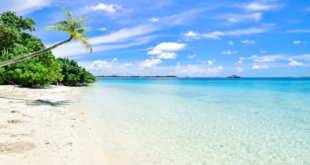The concept of the all-inclusive hotel, where guests pay a single price for accommodations, meals, drinks, and various activities, has revolutionized the travel industry. Today, these resorts are synonymous with hassle-free vacations, but their evolution reflects broader changes in tourism, economic trends, and consumer preferences.
Early Beginnings
Origins in the Club Med Concept
The origins of the all-inclusive hotel can be traced back to the post-World War II era. In 1950, Gérard Blitz, a Belgian entrepreneur and sports enthusiast, founded Club Méditerranée (Club Med) in Alcúdia, Spain. The idea was simple yet innovative: create a holiday camp where everything was included in the price, from lodging and meals to sports and entertainment.
Blitz’s vision was to provide a carefree environment where guests could leave their wallets behind and fully immerse themselves in relaxation and fun. The first Club Med consisted of simple straw huts, but it offered a new kind of vacation experience that quickly gained popularity.
Expansion and Evolution
Club Med’s success prompted expansion throughout the 1950s and 1960s. The company opened new resorts in various exotic locations, continually improving its amenities and services. By the 1970s, Club Med resorts featured more luxurious accommodations, a wider range of activities, and increasingly sophisticated dining options.
The Rise of All-Inclusive Resorts in the Caribbean
Enter Sandals Resorts
In the early 1980s, Jamaican-born entrepreneur Gordon “Butch” Stewart recognized the potential of the all-inclusive model in the Caribbean. In 1981, he opened the first Sandals Resort in Montego Bay, Jamaica. Sandals differentiated itself by offering a more upscale, couples-only experience, focusing on luxury, romance, and personalized service.
Stewart’s innovation lay in the comprehensiveness of the offerings: everything from gourmet dining and premium drinks to scuba diving and airport transfers was included in the price. This model appealed to travelers seeking a worry-free, indulgent holiday and set a new standard for all-inclusive resorts.
Growth and Diversification
Following the success of Sandals, the Caribbean saw a proliferation of all-inclusive resorts. Companies like SuperClubs, AMResorts, and RIU Hotels & Resorts entered the market, each introducing their unique twist on the all-inclusive concept. Some targeted families, offering kid-friendly activities and facilities, while others catered to adults seeking tranquility or adventure.
Global Expansion and Modern Trends
Popularity Spreads Worldwide
By the late 1990s and early 2000s, the all-inclusive model had spread beyond the Caribbean. Mexico, with its beautiful beaches and rich cultural heritage, became a prime destination for all-inclusive resorts, especially in areas like Cancún and the Riviera Maya. The Mediterranean, Southeast Asia, and even parts of Africa also saw the development of all-inclusive properties.
Adapting to Changing Tastes
Modern all-inclusive resorts have continued to evolve, adapting to changing consumer preferences and economic conditions. Today’s travelers seek more than just beaches and buffets; they want unique experiences, wellness options, and sustainable practices. As a result, many all-inclusive resorts now offer:
- Eco-Friendly Practices: Initiatives like reducing plastic use, sourcing local food, and promoting conservation efforts.
- Wellness Programs: Yoga retreats, spa treatments, and fitness classes to cater to health-conscious guests.
- Cultural Immersion: Excursions, cooking classes, and cultural performances to provide a deeper connection to the destination.
- Luxury Upgrades: Private pools, butler service, and fine dining options for those seeking an extra level of indulgence.
The Impact of Technology
Technology has also played a significant role in the evolution of all-inclusive resorts. Online booking platforms and social media have made it easier for travelers to discover and compare resorts. Additionally, advanced analytics and guest feedback systems allow resorts to continually refine their offerings and enhance the guest experience.
The Future of All-Inclusive Hotels
The all-inclusive model shows no signs of slowing down. As global travel continues to rebound post-pandemic, the demand for hassle-free, value-driven vacations is likely to grow. Future trends may include even greater customization, with resorts offering tailored experiences based on individual preferences and interests.
Moreover, sustainability and social responsibility will likely become even more critical, with guests expecting resorts to operate ethically and contribute positively to local communities.
From its humble beginnings in post-war Europe to its current status as a global phenomenon, the all-inclusive hotel has transformed the travel landscape. By continually adapting to meet the needs and desires of travelers, all-inclusive resorts have remained at the forefront of the hospitality industry, offering unforgettable vacations where everything is taken care of. As we look to the future, this innovative concept will undoubtedly continue to evolve, providing new and exciting ways for people to explore the world in comfort and style.
 Travellers Club The Travellers Club, a free to join on-line club for everyone who loves to travel.
Travellers Club The Travellers Club, a free to join on-line club for everyone who loves to travel.









